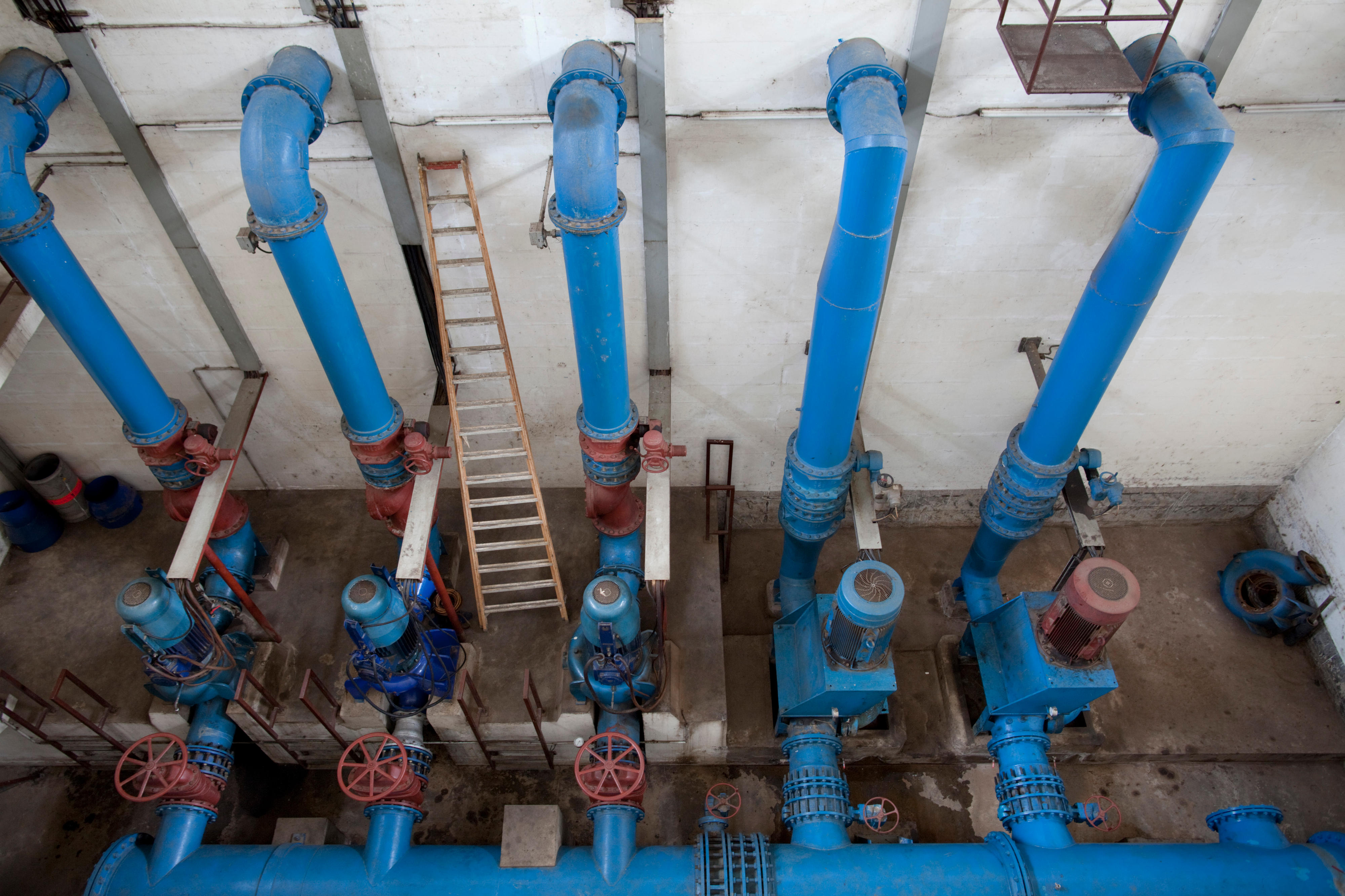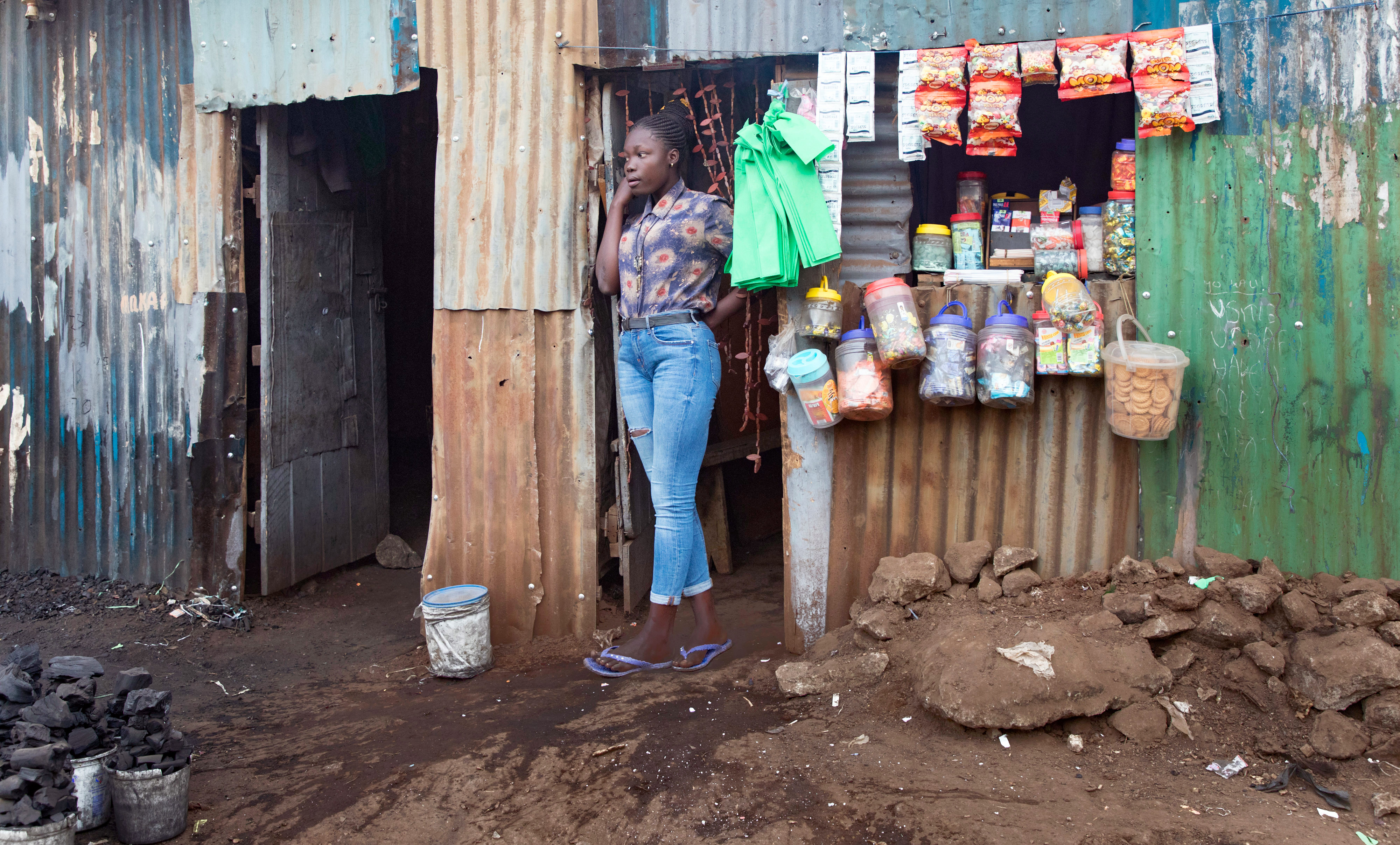Pumping station of a sewage treatment plant in Bujumbura, Burundi
Copyright© Ute Grabowsky/photothek.net
Sanitation Lack of sanitation: a health and environmental hazard
The issue of sanitation has been receiving increasing international attention in recent years – not least owing to the intensive efforts of the German government. In December 2015, the United Nations adopted resolution 70/169 (External link), in which, for the first time, the right to sanitation is mentioned as an independent human right alongside the right to water.
However, according to a UN report on progress on drinking water, sanitation and hygiene (External link), there were over 1.5 billion people in 2022 who did not even have basic sanitation in the form of toilets that are not shared with other households. As many as 419 million people had no access to sanitation at all and were forced to practise open defecation.
The World Health Organization (WHO) defines “improved” sanitation as flush toilets that are connected to piped sewer systems, septic tanks or pit latrines; ventilated improved pit latrines; or composting toilets. According to the WHO definition, “basic” sanitation requires that toilets are not shared with other households.
Sanitation, health and food security
Poor sanitation is linked to the transmission of numerous diseases, such as cholera, dysentery, typhoid fever, worm infections, and polio. In babies and young children, lack of sanitation can cause stunting and underweight. Diarrhoeal diseases are the main cause of death among children under the age of five – even though they can be prevented through good water and sanitation services. However, according to UN studies about two billion people had no handwashing facility with soap and water available at home in 2022.
Sanitation also plays a crucial role for food security and climate resilience. Water and nutrients can be recovered from wastewater and can then be used, for example, for agriculture. And sewage sludge can be co-treated with waste, serving as a source of biogas. However, current data suggest that less than 60 per cent of household wastewater is currently collected and treated.
German activities
In order to protect global water resources and simultaneously improve water supply for the people, the German Development Ministry supports a focus on a circular economy in waste and water management. The idea is to treat and reuse water. The recovery of useful by-products from wastewater and faecal sludge reduces resource consumption and prevents pollutants from entering the water cycle.
Among other things, the BMZ supports the increased use of productive sanitation systems. These are systems that use wastewater and excreta to produce energy (biogas) and irrigation water and fertiliser for agriculture. This waste-to-resource principle, which is used to reduce pollution, is an intelligent way of using waste products as a resource.
Young woman standing in front of her shop in Kibera, an informal settlement in Nairobi, Kenya
In the field of urban development, the BMZ is working to achieve close coordination within city administrations. The various authorities need to be brought together and develop a shared understanding of the challenges. For instance, urban and land use planning should give greater attention to water protection zones. In practical terms, this means that, in areas close to wells, proper sanitation and wastewater treatment need to be given special attention, so that there is no risk of faeces and untreated industrial or hospital effluents polluting the groundwater.
In order to advance global knowledge sharing regarding sustainable sanitation and its interfaces with other areas of life and the economy, the BMZ supports the Sustainable Sanitation Alliance (SuSanA (External link)). This innovation and knowledge platform helps to develop solutions and encourage project collaboration. The SuSanA secretariat, which is hosted by GIZ, gives the BMZ an opportunity to voice its position internationally on important development topics (sanitation, gender, climate action, South-South exchange, tracking progress on SDG 6).
As at: 13/06/2024

